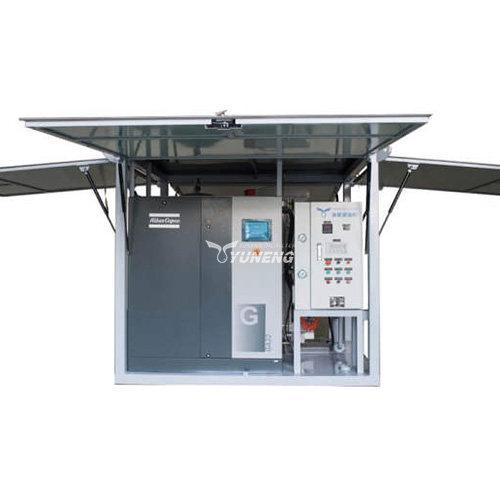How a Dry Air Generator Improves Industrial Processes

In many industrial applications, moisture control is critical for maintaining product quality, equipment efficiency, and operational safety. A Dry Air Generator is an essential piece of equipment that removes moisture from compressed air, ensuring optimal conditions for various manufacturing and processing tasks. This blog explores how dry air generators enhance industrial processes across different sectors.
Why Dry Air is Essential in Industry
Moisture in compressed air can lead to several problems, including:
Corrosion – Water accelerates rust in pipelines and machinery.
Product Contamination – In food, pharmaceutical, and electronics manufacturing, moisture can spoil products or cause defects.
Equipment Failure – Pneumatic tools and control systems malfunction when exposed to excess humidity.
Reduced Efficiency – Wet air requires more energy to compress, increasing operational costs.
A Dry Air Generator eliminates these issues by delivering moisture-free air, improving reliability and productivity.
Key Industrial Applications of Dry Air Generators
1. Food & Beverage Industry
Moisture in compressed air can lead to bacterial growth and spoilage. Dry air generators ensure that air used in packaging, mixing, and bottling remains contaminant-free, meeting stringent hygiene standards.
2. Pharmaceutical Manufacturing
Medicines and medical devices must be produced in moisture-controlled environments to prevent degradation. Dry air generators help maintain compliance with GMP (Good Manufacturing Practices).
3. Electronics & Semiconductor Production
Even tiny amounts of moisture can damage sensitive electronic components during manufacturing. Dry air prevents oxidation and short circuits, ensuring high-quality production.
4. Automotive & Painting Applications
In spray painting, moisture causes uneven finishes and paint defects. Dry air ensures smooth, bubble-free coatings, improving product aesthetics and durability.
5. Chemical & Petrochemical Industries
Many chemical reactions are sensitive to humidity. Dry air generators help maintain precise conditions, preventing unwanted reactions and improving yield.
How Dry Air Generators Work
Most dry air generators use desiccant technology or refrigeration drying:
Desiccant Dryers – Use adsorbent materials (like silica gel) to trap moisture.
Refrigeration Dryers – Cool compressed air to condense and remove water vapor.
These systems ensure consistent dew points as low as -40°F (-40°C), making them ideal for moisture-sensitive applications.
Conclusion
A Dry Air Generator is a vital investment for industries where moisture control is non-negotiable. By preventing contamination, corrosion, and inefficiencies, these systems enhance product quality, extend equipment life, and reduce operational costs. Whether in food processing, pharmaceuticals, or electronics, dry air generators play a crucial role in maintaining optimal industrial performance.
- Art
- Causes
- Crafts
- Dance
- Drinks
- Film
- Fitness
- Food
- Игры
- Gardening
- Health
- Главная
- Literature
- Music
- Networking
- Другое
- Party
- Religion
- Shopping
- Sports
- Theater
- Wellness


